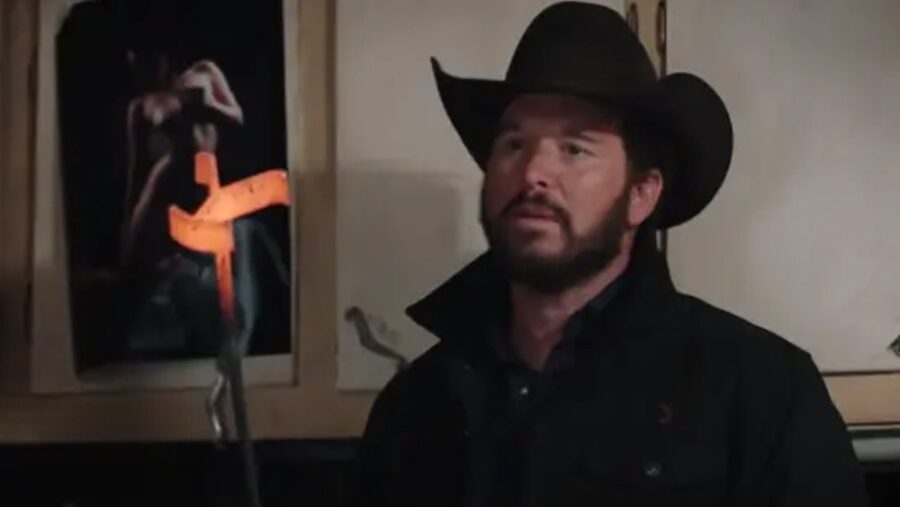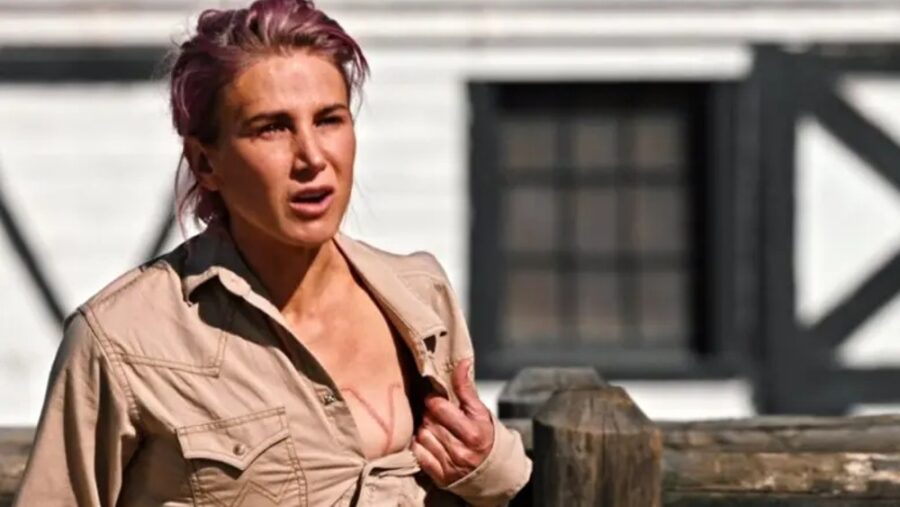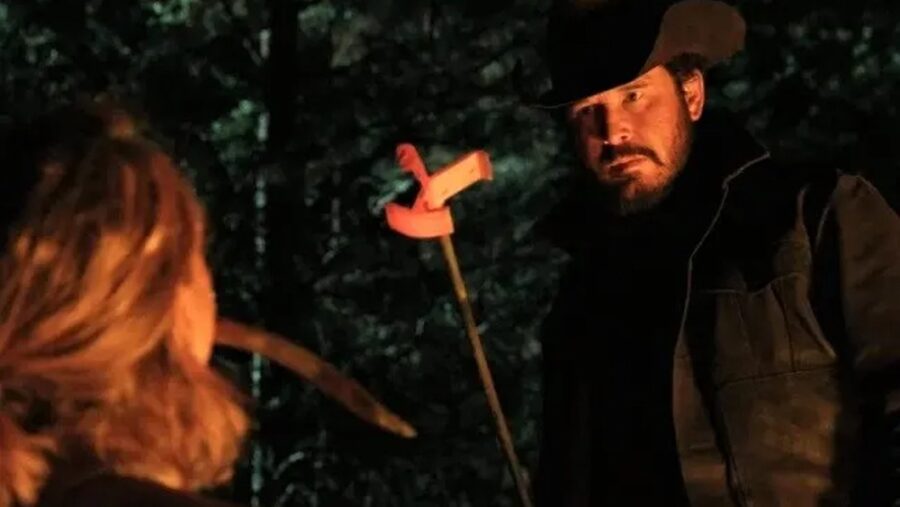What’s With Yellowstone Branding People Like Cattle?

Yellowstone is a modern-day western saga that unfolds against the backdrop of the untamed American wilderness, offering a glimpse into the challenges of life in this rugged terrain. Within the series lies a disturbing yet fascinating custom observed at Yellowstone Dutton Ranch: the practice of branding humans. The show’s creators, Taylor Sheridan and John Linson, employ branding as a symbolic and physical testament to themes of loyalty, belonging, and redemption, marking characters with a symbol akin to cattle branding.
Yellowstone uses branding not as a punishment but as a mark of loyalty and belonging to the Dutton Ranch, at least, ideally, it doesn’t always work out that way.
At the core of this tradition lies a profound metaphor hinting at timeless loyalty and unbreakable bonds. When characters on the show are branded, it symbolizes an eternal allegiance to the ranch, rendering them part of a familial structure despite not being related by blood. The branding iron, heated to a searing temperature, imprints upon the chosen individuals a lifelong reminder of their commitment to Yellowstone Dutton Ranch.
In addition to symbolizing loyalty, the emblem emblazoned onto the chosen characters embodies a chance at redemption. The brand offers an opportunity for individuals to transcend their past misdeeds, providing a fresh yet painful start within the confines of Yellowstone Dutton Ranch. For instance, the branding of Jimmy Hurdstrom (Jefferson White) in the first season of Yellowstone signifies a stark choice between a life of lawful labor at the ranch or facing legal repercussions for past offenses.

Other branded characters on Yellowstone, like Kayce Dutton (Luke Grimes), Rip Wheeler (Cole Hauser), and more, have unique branding experiences reflecting their personal stories and steadfast loyalty to the ranch. It’s worth noting that not all those who work on the Yellowstone Dutton Ranch are branded; this honor is reserved for those who have displayed staunch loyalty and unwavering trustworthiness. It’s a painful yet prized acknowledgment of an individual’s readiness to belong, protect, and uphold the ranch’s values.
The brand offers an opportunity for individuals to transcend their past misdeeds, providing a fresh yet painful start within the confines of Yellowstone Dutton Ranch.
Kayce Dutton’s branding stemmed from his defiance towards his father, John Dutton (Kevin Costner), especially when he disclosed his plans to marry Monica (Kelsey Asbille) after her pregnancy, against John’s strong opposition. John, urging an abortion, was met with Kayce’s refusal due to his deep love for Monica and their unborn child. This disagreement drove John to personally brand Kayce, a harsh move to express his disdain and remind Kayce of the unerasable boundary he had crossed, plunging Kayce into a tug of loyalty between his father and his love for Monica, a turmoil symbolized by the brand on his chest.

Similarly, the branding narrative takes a dark turn with Wade Morrow (Boots Southerland) in the third season of Yellowstone, who, after being caught stealing, becomes a target of betrayal. Viewers learn the harsh repercussions awaiting those who dare to defy the unspoken oath when Walker (Ryan Bingham) ruthlessly cuts off Wade’s brand. The brutality inflicted upon Wade showcases the steep costs of disloyalty and highlights a compelling facet of the ranch’s unforgiving brand of justice.
The branding iron, heated to a searing temperature, imprints upon the chosen individuals a lifelong reminder of their commitment to Yellowstone Dutton Ranch.
The branding emblem on Yellowstone, the Hooked Rocking Y, finds its roots in actual American cattle branding history, connecting fiction to real-life ranching heritage. This emblem, derived from a fusion of two historical cattle brands, alludes to a profound linkage to the American cattle ranching tradition. Although the Hooked Rocking Y remains fictional, the branding notion bridges the chasm between the reel and real, enveloping the show’s storyline in a cloak of authenticity.
Despite its dramatic allure, human branding in Yellowstone doesn’t reflect contemporary ranching practices. While the show draws viewers into a world where flesh bears testimony to loyalty, real-life ranches steer clear from such brutal practices due to obvious health and ethical considerations. The thematic use of branding in Yellowstone aligns more with narrative symbolism rather than an actual ranching tradition.












